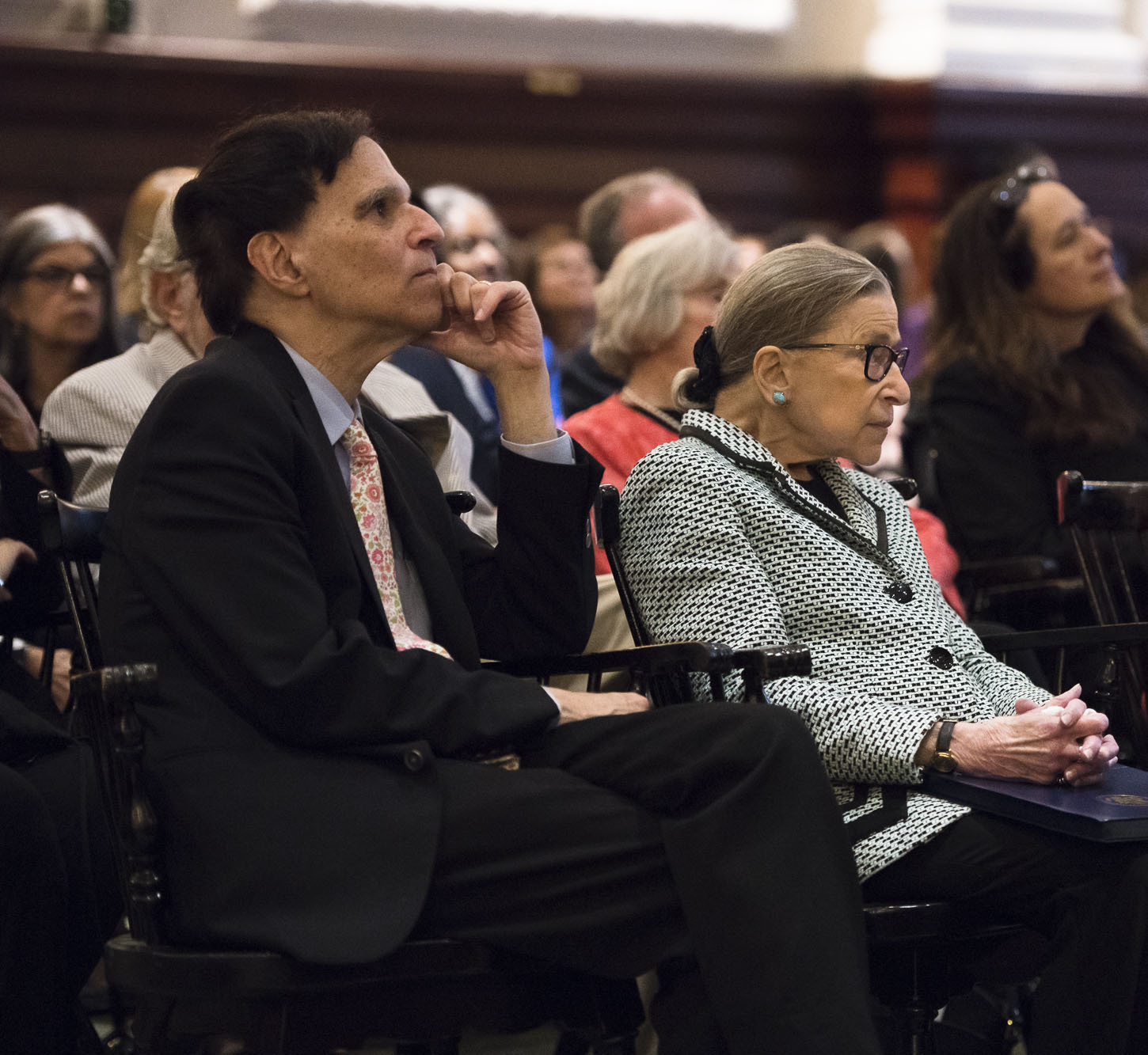Statement on the Passing of Judge Robert A. Katzmann

The New York City Bar Association mourns the passing of Robert A. Katzmann, former Chief Judge of the United States Court of Appeals for the Second Circuit, and a great friend and inspiration to many at the Association.
Judge Katzmann was a regular presence at the City Bar, where he delivered two seminal lectures that led to profound effects on civic education and access to justice.
As the first federal judge with a doctorate in government, Judge Katzmann was an eminently qualified champion for civic education. In delivering the City Bar’s 2016 Leslie H. Arps Lecture titled “A Republic If You Can Keep It,” he spoke of his “Justice for All: Courts and the Community” initiative, the mission of which was “to bring the communities to the courts, and to bring the courts to the communities.” He said, “If we as a country are to continue to tackle our problems, even as there is increasing doubts about the effectiveness of governmental institutions, then there must be a shared appreciation about the constitutional system underlying those institutions. There must be a shared understanding of the principles, values, and basic workings of that constitutional system….Students who learn about and appreciate the Constitution and courts grow up to be adults who respect and support it.”
Judge Katzmann’s other great cause that intersected with the City Bar was his extraordinary work on behalf of immigrants’ rights. He specifically had a great influence on the work of the City Bar Justice Center through his support for pro bono and his powerful and consequential advocacy on behalf of immigrants’ access to legal services.
In delivering the City Bar’s Orison S. Marden Memorial lecture in 2007 – titled “The Legal Profession and the Unmet Needs of the Immigrant Poor” – Judge Katzmann described the lawyer’s function as grounded in “role morality,” saying that [a] lawyer’s duty to serve those unable to pay is not an act of charity or benevolence alone, but rather one of professional responsibility, reinforced by the terms under which the state has granted to the profession effective control of the legal system.”
His father a refugee from Nazi Germany and his mother born to Russian immigrants, Judge Katzmann was naturally drawn to immigration cases. “I think we can all imagine our own ancestors or ancestors of friends and relate to the anxieties of today’s newcomers,” he said at the Marden lecture. “We are a nation of immigrants, whose contributions have been vital to who we are and hope to be. All too often immigrants are deprived of adequate legal representation, essential if they and their families are to live openly and with security. This failure should be a concern for all of us committed to the fair and efficient administration of justice.”
Following the lecture, to create a structure for the legal community to answer his call for immigration legal assistance, Judge Katzmann convened an ongoing study group on the topic. The “Katzmann Study Group,” which met early mornings before court, was where many issues around immigration were examined, among them how the City Bar Justice Center and The Legal Aid Society could get attorneys into federal immigrant detention facilities to offer representation. The Study Group’s “New York Immigrant Representation Study” led to the creation of the New York Immigrant Family Unity Project (NYIFUP), the nation’s first public defender system for immigrants facing deportation, and the Immigrant Justice Corps, a fellowship program that recruits and trains immigration attorneys, both sure to be among Judge Katzmann’s lasting legacies.
Judge Katzmann regularly attended the City Bar’s annual Justice Ruth Bader Ginsburg Distinguished Lecture on Women and the Law. The two had a long and close connection, he having served as special counsel in her confirmation, and she having administered his oath of office and having served as the Supreme Court Justice assigned to the Second Circuit, where he was Chief Judge. Shortly after Justice Ginsburg passed away last fall, the Second Circuit Judicial Conference, which was planned by Judge Katzmann and at which Justice Ginsburg often spoke (and which the City Bar was honored to host virtually), became a series of tributes to the late Justice.
Judge Katzmann’s leadership in the legal profession will be missed, as will his presence at City Bar events. The New York City Bar Association expresses its heartfelt condolences to Judge Katzmann’s wife, Jennifer Callahan, and to all of his family, friends and colleagues.

